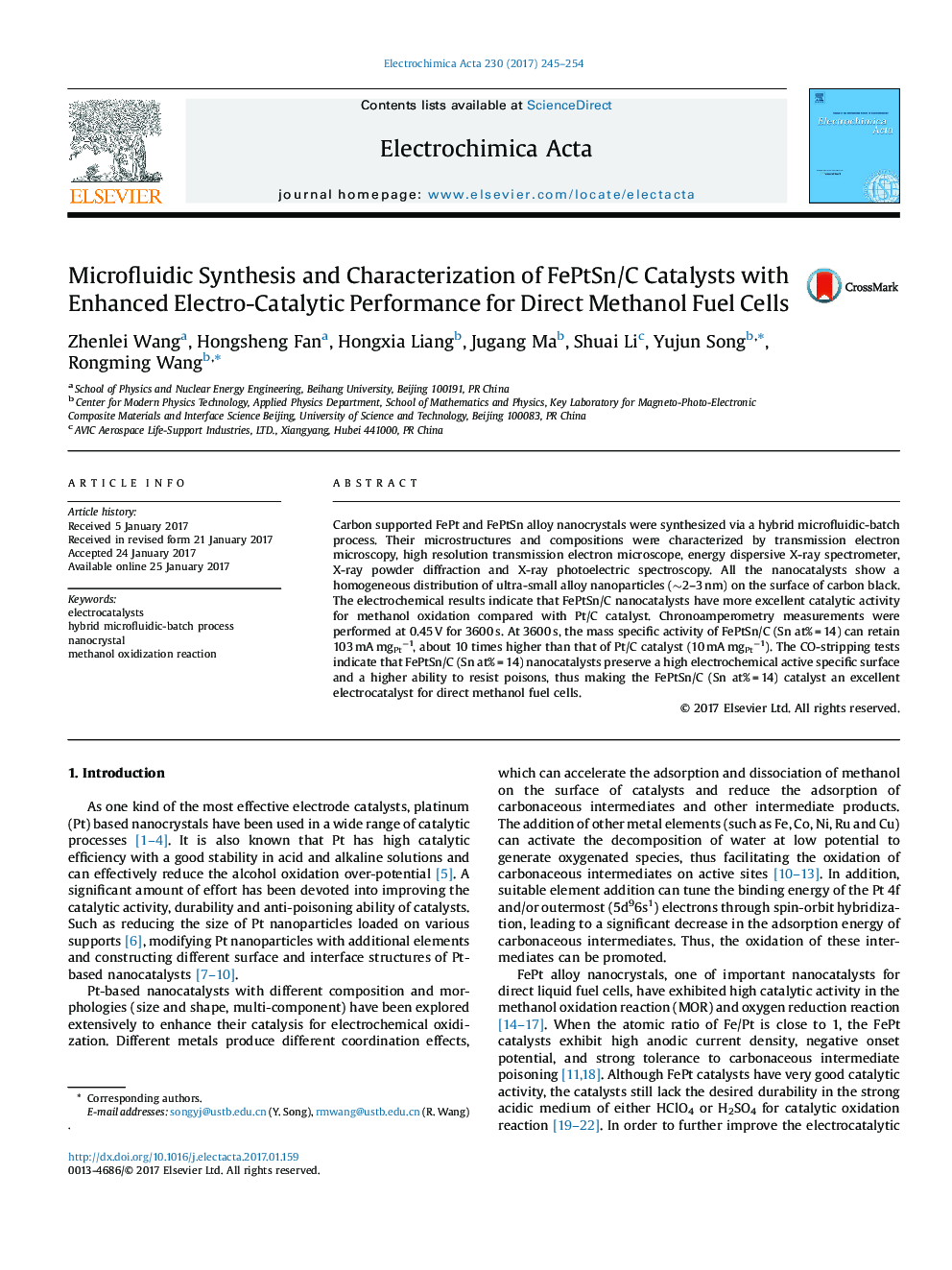| Article ID | Journal | Published Year | Pages | File Type |
|---|---|---|---|---|
| 6471379 | Electrochimica Acta | 2017 | 10 Pages |
Carbon supported FePt and FePtSn alloy nanocrystals were synthesized via a hybrid microfluidic-batch process. Their microstructures and compositions were characterized by transmission electron microscopy, high resolution transmission electron microscope, energy dispersive X-ray spectrometer, X-ray powder diffraction and X-ray photoelectric spectroscopy. All the nanocatalysts show a homogeneous distribution of ultra-small alloy nanoparticles (â¼2-3Â nm) on the surface of carbon black. The electrochemical results indicate that FePtSn/C nanocatalysts have more excellent catalytic activity for methanol oxidation compared with Pt/C catalyst. Chronoamperometry measurements were performed at 0.45Â V for 3600Â s. At 3600Â s, the mass specific activity of FePtSn/C (Sn at%Â =Â 14) can retain 103Â mAÂ mgPtâ1, about 10 times higher than that of Pt/C catalyst (10Â mAÂ mgPtâ1). The CO-stripping tests indicate that FePtSn/C (Sn at%Â =Â 14) nanocatalysts preserve a high electrochemical active specific surface and a higher ability to resist poisons, thus making the FePtSn/C (Sn at%Â =Â 14) catalyst an excellent electrocatalyst for direct methanol fuel cells.
